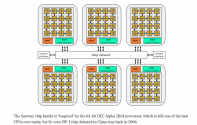Wait. Did Trump really say that? What's the context? Do you have the full clip?
I am pretty sure that I saw it somewhere. Just tried looking for it, but after a minute, I thought forget it.
President Trump says the most strangest things ever, so after the entertainment value and shock value, it probably does not mean anything.
Then after further digging, this is as close as I got.

